Power Platform developers are at the heart of customizing and automating business processes within organizations. They leverage Microsoft’s Power Platform to create solutions that enhance productivity and drive business efficiency.
Skills required for this role include proficiency in Microsoft PowerApps, Power Automate, and Power BI, along with a strong understanding of data integration and governance.
Candidates can write these abilities in their resumes, but you can’t verify them without on-the-job Power Platform Developer skill tests.
In this post, we will explore 8 essential Power Platform Developer skills, 9 secondary skills and how to assess them so you can make informed hiring decisions.
Table of contents
8 fundamental Power Platform Developer skills and traits
The best skills for Power Platform Developers include PowerApps Development, Power Automate Flows, Power BI Integration, Data Modeling, API Customization, Security Implementation, ALM Practices and User Interface Design.
Let’s dive into the details by examining the 8 essential skills of a Power Platform Developer.
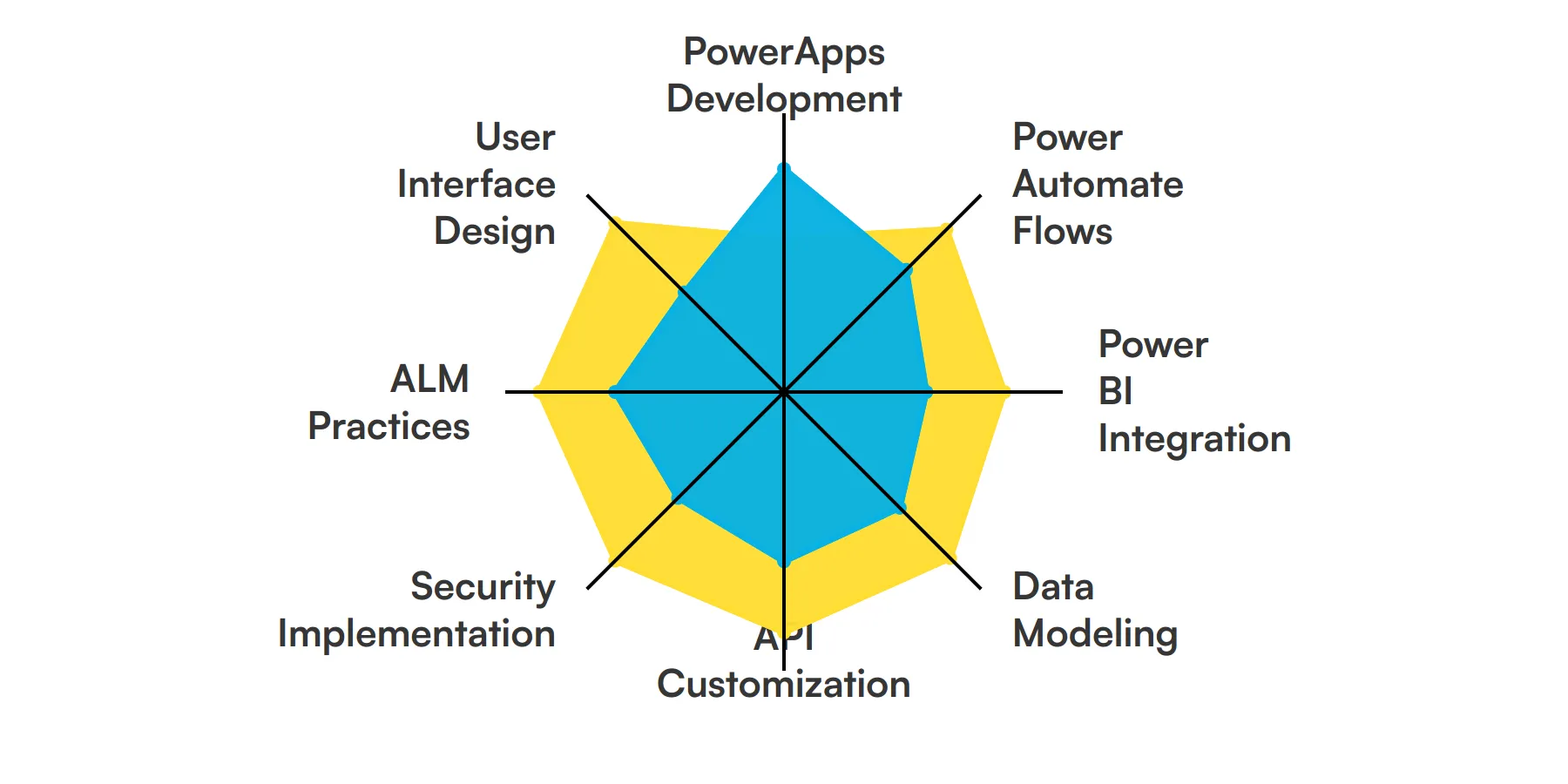
PowerApps Development
PowerApps Development involves creating business applications using the PowerApps platform. A Power Platform Developer uses this skill to design, develop, and implement solutions that streamline processes and enhance productivity within an organization. This skill is crucial for customizing applications to fit business needs.
For more insights, check out our guide to writing a Power Platform Developer Job Description.
Power Automate Flows
This skill enables the automation of workflows and business processes. Power Platform Developers utilize Power Automate to connect various applications and services, automating tasks that would otherwise require manual intervention, thus increasing efficiency and reducing errors.
Power BI Integration
Integrating Power BI allows developers to embed interactive data visualizations and business intelligence capabilities into their applications. This skill is used by Power Platform Developers to provide end-users with actionable insights through rich dashboards and reports, directly influencing strategic business decisions.
Check out our guide for a comprehensive list of interview questions.
Data Modeling
Data modeling is essential for structuring data in ways that make it usable and accessible within apps. Power Platform Developers need this skill to ensure that data flows efficiently between services, optimizing the performance and scalability of their solutions.
API Customization
Customizing APIs involves integrating third-party services or legacy systems with the Power Platform. Developers use this skill to extend the capabilities of their applications, allowing for more comprehensive and versatile solutions tailored to specific business requirements.
Security Implementation
Implementing security measures is critical in safeguarding applications. Power Platform Developers use this skill to configure security settings, manage data access, and ensure compliance with regulatory standards, protecting sensitive information from unauthorized access.
For more insights, check out our guide to writing a Cyber Security Engineer Job Description.
ALM Practices
Application Lifecycle Management (ALM) practices are crucial for managing the app development lifecycle. This skill helps Power Platform Developers maintain control over versioning, testing, and deployment, ensuring that updates and changes are smoothly integrated without disrupting existing functionalities.
User Interface Design
Designing user interfaces involves creating intuitive and effective user interactions. Power Platform Developers use this skill to ensure that applications are not only functional but also user-friendly, enhancing the overall user experience and adoption.
9 secondary Power Platform Developer skills and traits
The best skills for Power Platform Developers include SQL Knowledge, Azure Services, JavaScript Proficiency, Project Management, Debugging Skills, Documentation Skills, Adaptability, Collaboration and Testing Procedures.
Let’s dive into the details by examining the 9 secondary skills of a Power Platform Developer.
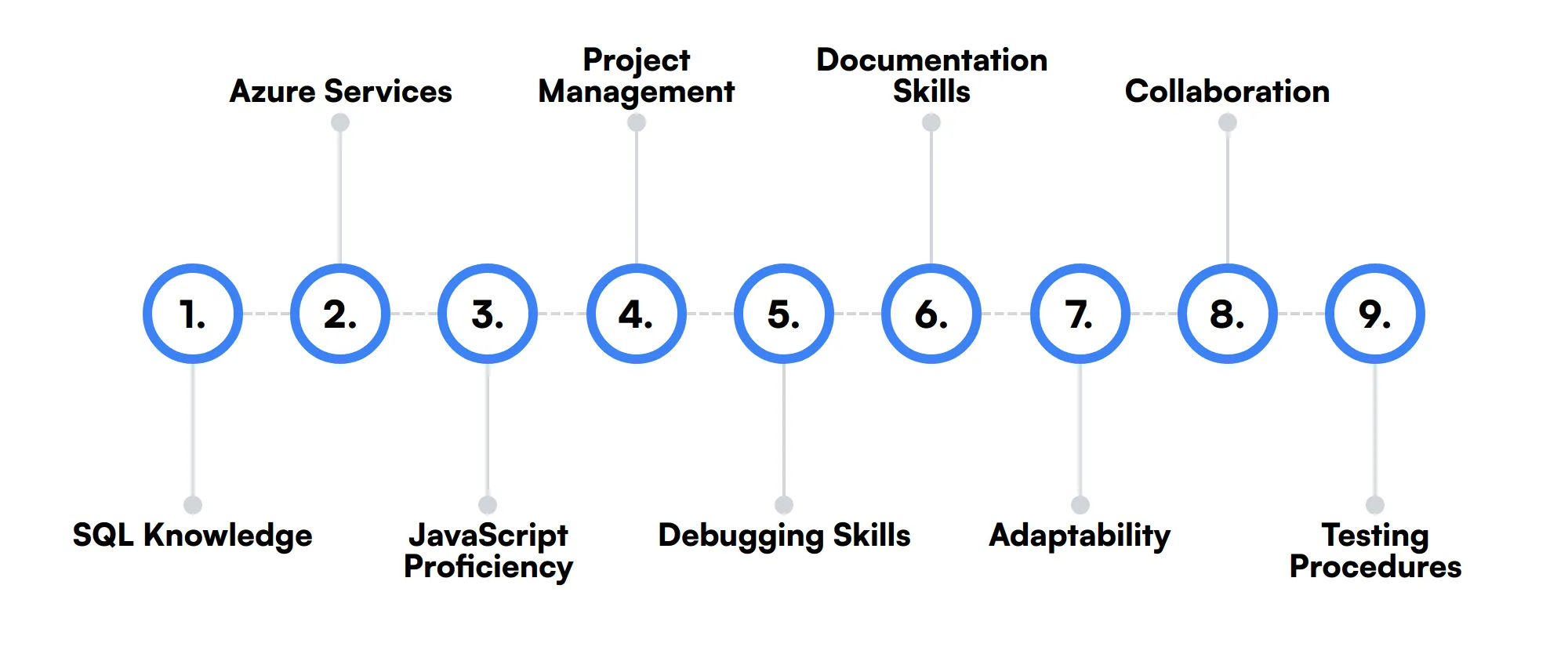
SQL Knowledge
Understanding SQL helps in managing databases effectively, crucial for data-driven applications.
Azure Services
Familiarity with Azure services enhances a developer's ability to deploy and manage Power Platform solutions in the cloud.
JavaScript Proficiency
JavaScript can be used to extend the functionality of PowerApps, making it a valuable skill for complex implementations.
Project Management
Managing timelines and resources effectively ensures successful project delivery.
Debugging Skills
Ability to troubleshoot and fix issues is essential for maintaining the reliability of applications.
Documentation Skills
Proper documentation supports maintenance and scalability of applications by ensuring all team members understand the system.
Adaptability
The tech field is ever-evolving, and being adaptable allows developers to embrace new tools and practices effectively.
Collaboration
Working well in a team setting is important for the collective success of development projects.
Testing Procedures
Implementing thorough testing ensures that applications perform as expected before going live.
How to assess Power Platform Developer skills and traits
Assessing the skills and traits of a Power Platform Developer involves more than just glancing at a resume. It requires a deep dive into their practical abilities across various domains such as PowerApps Development, Power Automate Flows, and Power BI Integration. Understanding how to evaluate these skills effectively is key to finding the right candidate for your team.
Traditional hiring methods often fall short when it comes to verifying a candidate's hands-on capabilities in areas like Data Modeling, API Customization, and Security Implementation. This is where practical assessments come into play. By using skills-based assessments, you can measure a candidate's proficiency in real-world scenarios, ensuring they are not only knowledgeable but also capable of applying their skills effectively.
For instance, Adaface offers tailored assessments that align with the specific needs of Power Platform projects. These tests are designed to reflect the actual tasks a developer would face, covering everything from ALM Practices to User Interface Design. By incorporating these assessments into your hiring process, you can achieve a 2x improvement in the quality of your hires. Learn more about how Adaface can streamline your screening process and enhance your hiring decisions here.
Let’s look at how to assess Power Platform Developer skills with these 6 talent assessments.
Microsoft Power Platform Developer Test
Microsoft Power Platform Developer Test evaluates a candidate's ability to design and develop custom solutions using the Power Platform. The test covers key areas such as Power BI, Power Automate, Power Apps Development, and Programming Ability.
The test assesses their understanding of Power Apps development, Power Automate development, Power BI development, Microsoft Dataverse, data modeling, plugin development, custom connectors, and Azure Functions. Candidates navigate through scenario-based multiple choice questions to demonstrate their skills.
Successful candidates show proficiency in creating custom solutions, integrating various Power Platform components, and leveraging Azure Functions for extended functionality.
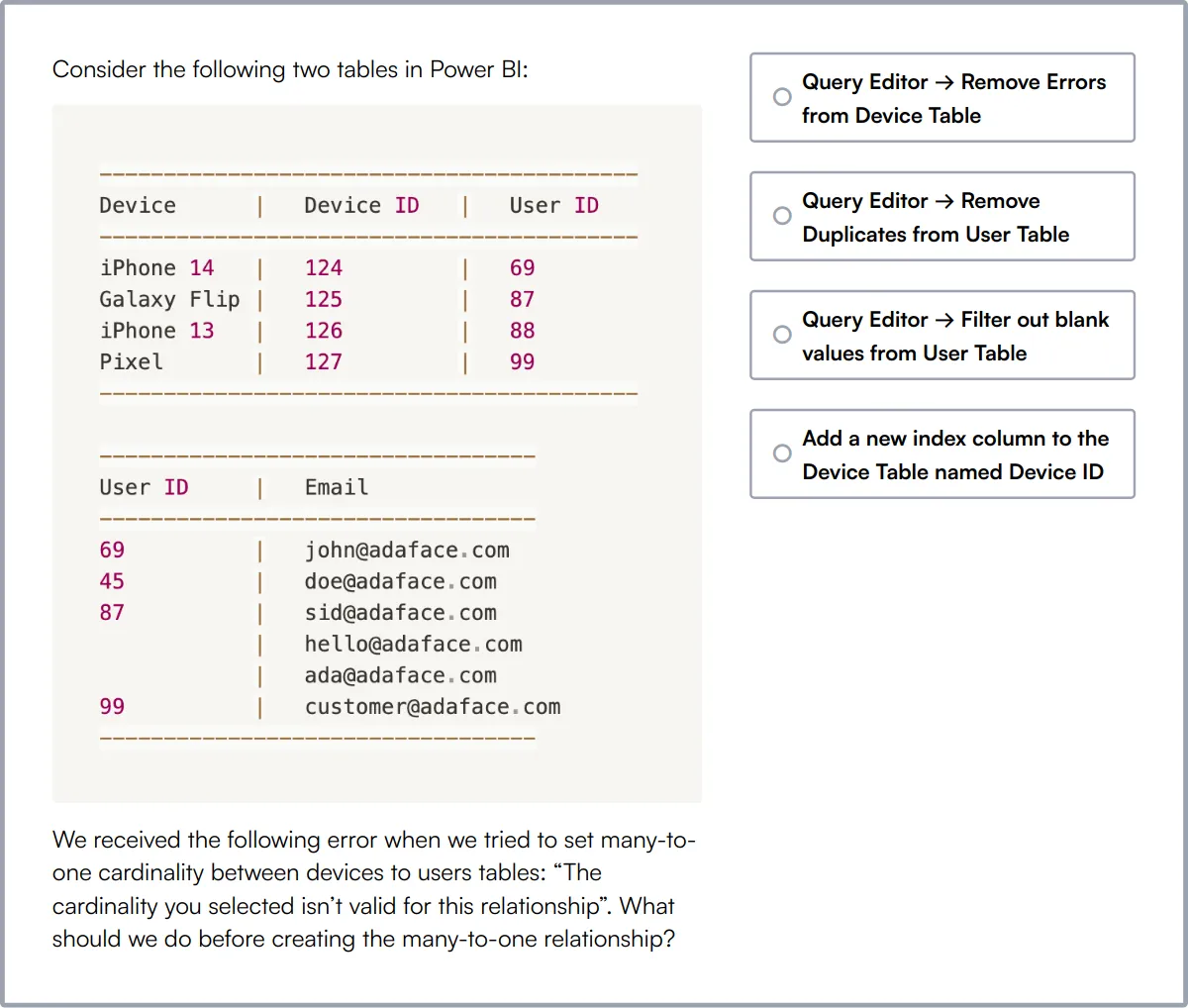
Power BI Online Test
Power BI Online Test evaluates a candidate's ability to build data models, select and execute appropriate visualizations, and create dashboards to explore data and answer queries.
The test assesses their skills in connecting to data sources, data wrangling and transformations, data models, DAX formulas, themes and visualization, interactive reports, publishing and sharing, and Power BI Desktop.
High-scoring candidates demonstrate expertise in creating insightful reports, running analytics using DAX language, and effectively sharing their findings.
Data Modeling Skills Test
Data Modeling Skills Test evaluates a candidate's knowledge and abilities in database design, SQL, ER diagrams, normalization, relational schema, data integrity, data mapping, data validation, and data transformation.
The test assesses their understanding of data modeling, database design, SQL, ER diagrams, normalization, relational schema, data integrity, data mapping, data validation, and data transformation.
Successful candidates show proficiency in designing efficient databases, ensuring data integrity, and transforming data to meet business requirements.
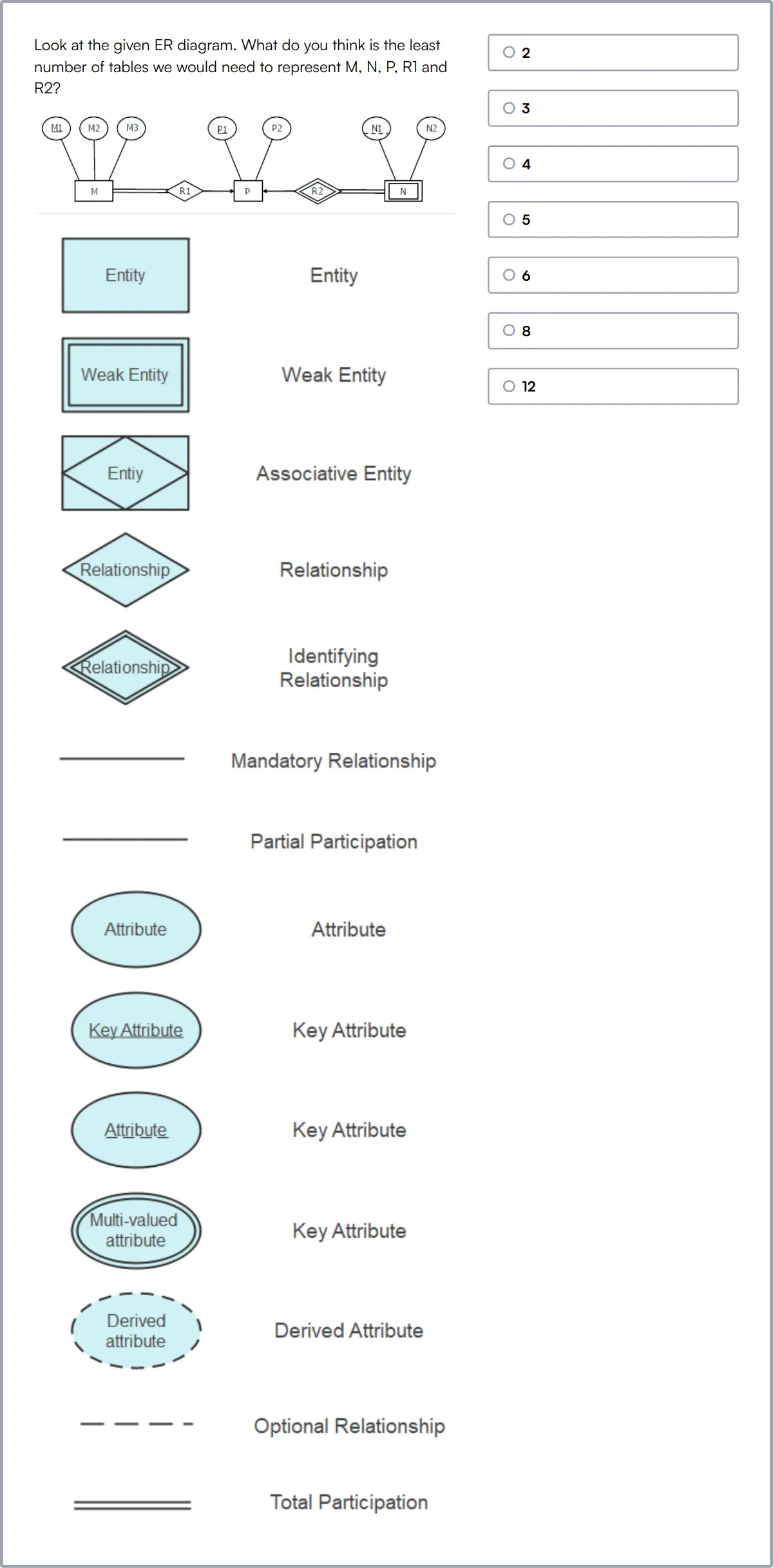
REST API Test
REST API Test evaluates a candidate's understanding of RESTful APIs and their ability to create, interact, and test them.
The test assesses their knowledge of REST principles, HTTP methods, status codes, authentication, serialization formats, and best practices. It includes multiple-choice questions and a coding question to evaluate practical skills.
High-scoring candidates demonstrate proficiency in designing and implementing RESTful APIs, following best practices, and ensuring secure and efficient API interactions.
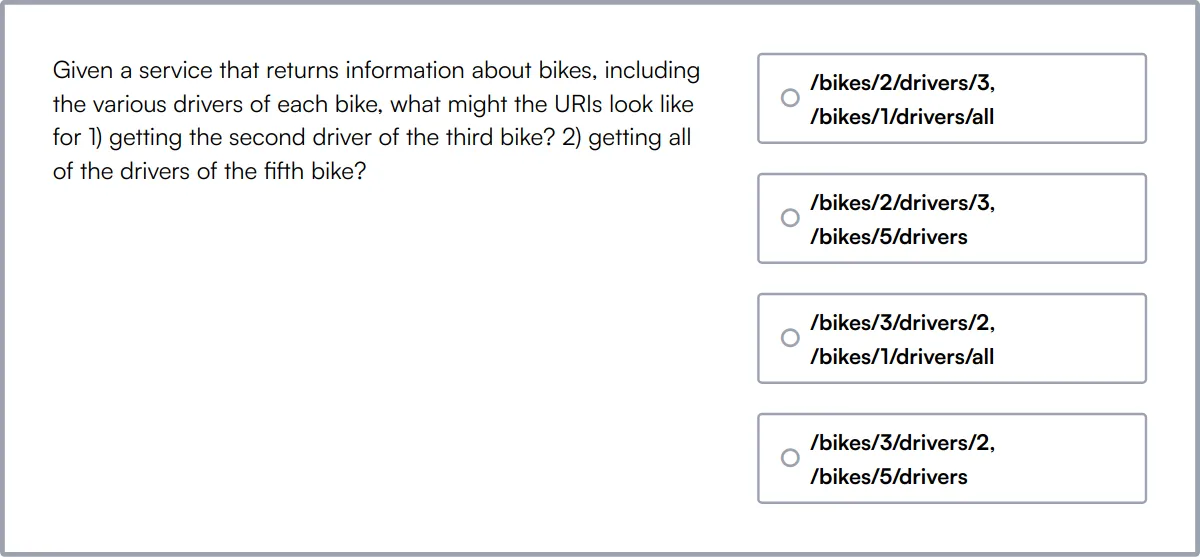
Cyber Security Assessment Test
Cyber Security Assessment Test evaluates candidates on Cyber Security basics, their ability to detect security risks, set up guards against cyber attacks, and use cryptography techniques.
The test assesses their understanding of network security, cybersecurity attacks, cryptography, web security, email security, malware, data security, data governance, cybersecurity defenses, risk assessments, and network tests.
Successful candidates show proficiency in identifying and mitigating security risks, implementing robust security measures, and using cryptography to protect data.
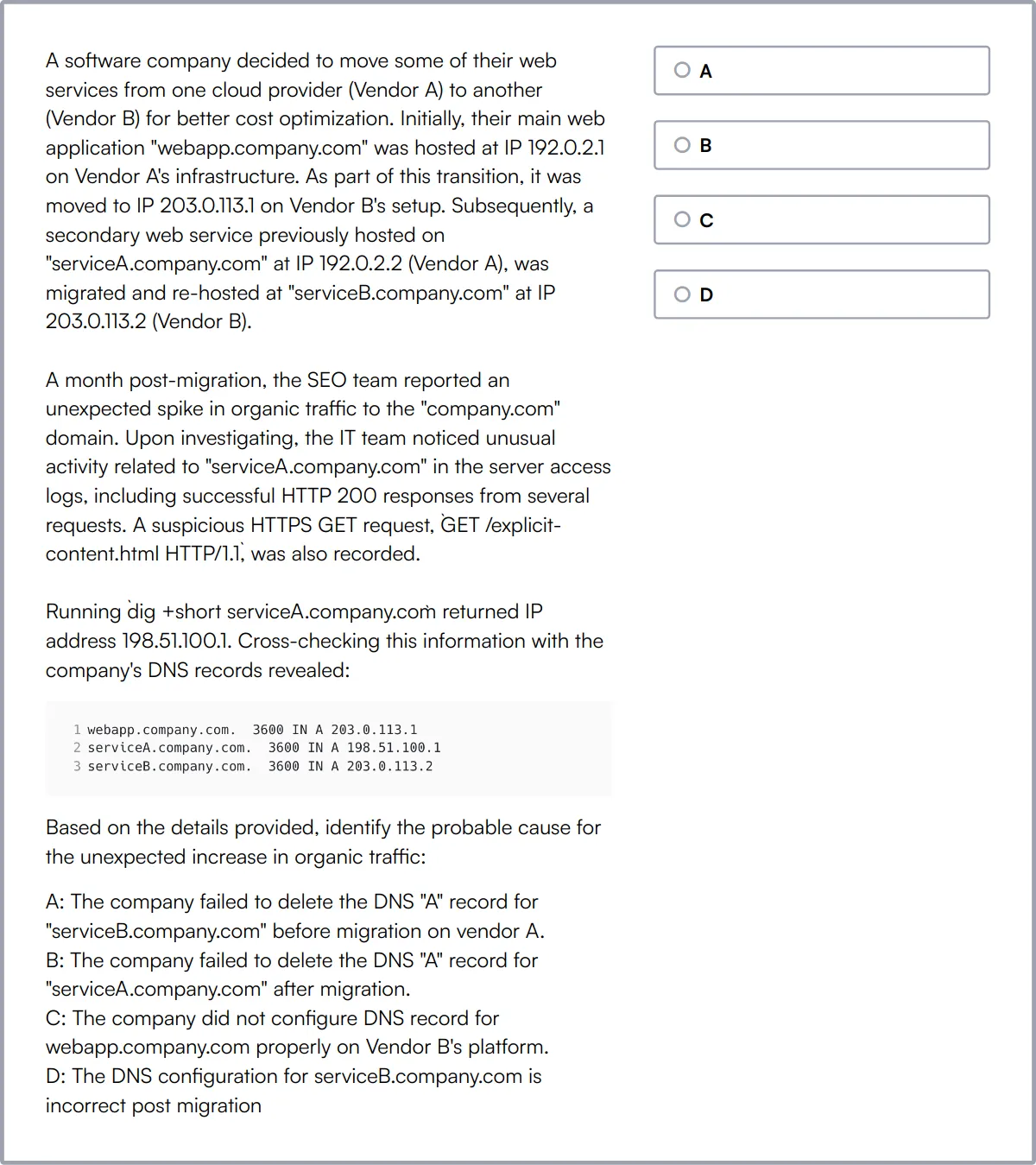
Azure DevOps Test
Azure DevOps Test assesses a candidate's proficiency in working with Azure and implementing DevOps best practices.
The test evaluates their understanding of cloud computing, infrastructure as code, continuous integration and delivery, configuration management, containerization, and monitoring and logging. It includes questions on Python, Linux, and Azure.
High-scoring candidates demonstrate expertise in managing Azure resources, automating deployment processes, and maintaining efficient and secure cloud environments.
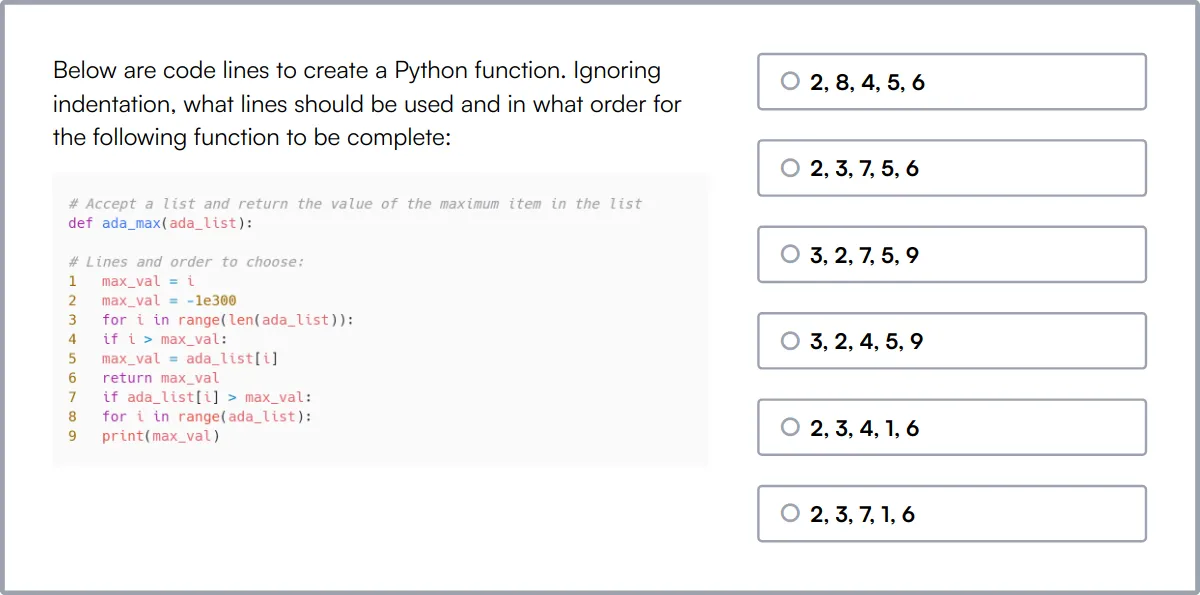
Summary: The 8 key Power Platform Developer skills and how to test for them
| Power Platform Developer skill | How to assess them |
|---|---|
| 1. PowerApps Development | Evaluate a developer's ability to build functional, efficient applications. |
| 2. Power Automate Flows | Assess ability to automate processes and integrate systems effectively. |
| 3. Power BI Integration | Check proficiency in integrating and visualizing data with Power BI. |
| 4. Data Modeling | Review skills in structuring and organizing data effectively. |
| 5. API Customization | Determine capability to tailor APIs to business needs. |
| 6. Security Implementation | Examine knowledge in applying security protocols and measures. |
| 7. ALM Practices | Assess understanding and application of application lifecycle management. |
| 8. User Interface Design | Evaluate design skills for intuitive and appealing interfaces. |
Microsoft Power Platform Developer Test
Power Platform Developer skills FAQs
What skills are necessary for a Power Platform Developer?
A Power Platform Developer should be proficient in PowerApps, Power Automate, and Power BI. Skills in data modeling, API customization, and security implementation are also important. Additionally, knowledge of SQL, Azure services, and JavaScript enhances their capability.
How can recruiters assess PowerApps development skills?
Recruiters can assess PowerApps development skills by reviewing candidates' previous projects or portfolios. Technical interviews or practical tests involving scenario-based tasks can also provide insight into a candidate's proficiency with PowerApps.
What is the role of Power BI in a Power Platform Developer's job?
Power BI plays a key role in a Power Platform Developer's job by enabling them to integrate complex data visualizations and analytics directly into their solutions. This integration helps in making informed decisions based on data-driven insights.
Why is knowledge of Azure Services important for Power Platform Developers?
Knowledge of Azure Services is important because it allows developers to extend the capabilities of the Power Platform, such as enhancing data storage, computing power, and integrating advanced functionalities like AI and machine learning into their applications.
What testing procedures should a Power Platform Developer be familiar with?
A Power Platform Developer should be familiar with unit testing, integration testing, and user acceptance testing. These procedures ensure that the applications built are reliable, perform well under different scenarios, and meet user requirements.
How important are collaboration and adaptability in a Power Platform Developer role?
Collaboration and adaptability are key in a Power Platform Developer role as they often work in team settings and must adapt to changing project requirements and technologies. Effective communication and flexibility contribute to successful project outcomes.
Assess and hire the best Power Platform Developers with Adaface
Assessing and finding the best Power Platform Developer is quick and easy when you use talent assessments. You can check out our product tour, sign up for our free plan to see talent assessments in action or view the demo here:

40 min skill tests.
No trick questions.
Accurate shortlisting.
We make it easy for you to find the best candidates in your pipeline with a 40 min skills test.
Try for freeRelated posts



